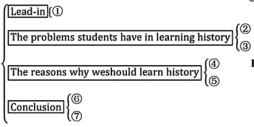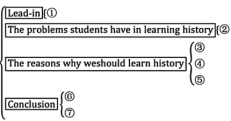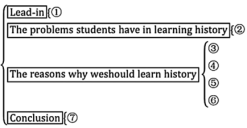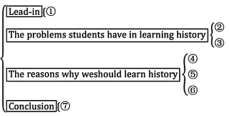My challenge for you is this: to read a book for 15 minutes every single day for a month.
Let me explain a bit, by telling you where the challenge came from. I have many things in common with my dad, like music taste and sense of humor but sadly reading isn’t one of them. I can happily spend a whole day with a book, but my dad can’t read a book for longer than about 5 minutes. He reads emails, websites and papers for work, but not books. He’s busy, so I think sitting down to read just 15 minutes a day is a good way to relax and to introduce him to reading.
My dad is not the only person who avoids books. I know lots of people would rather relax on their computers or in front of TV. Everyone is different and has their own interests, but I think there are lots of benefits to reading, which screen-based activities don’t have.
Firstly, it’s better for your eyes. Looking at screens can be very stressful for your eyes, and clearly you should avoid looking at screens for an hour before bed, to get a good night’s sleep.
One thing I personally love reading, is being transported to another world—I often forget the time or things around me! Reading is a great way to switch off before you go to bed, because you think more about the world of the book, rather than the real world, so you can truly relax. I know you can be transported to a different world in a film or a TV show, but I think books do it better.
I also enjoy hearing what people are doing and finding out what they think. Reading gives me the chance to get to know hundreds of new people! It also teaches you to see things from other people’s point of view, and understand other people’s decisions or opinions. With a book, you can hear everything a character is thinking or feeling—you really can be inside someone else’s head?
So give it a go! Take 15 minutes when you are waking up, going to bed, eating lunch, or having a coffee. If you read a lot, why not try 15 minutes of an English book, or pass the challenge on to someone else? Good luck, and happy reading!
1. The writer mentions his father in the text to show .| A.his father is busy. | B.reading is important. |
| C.his father likes reading. | D.many people have no habit of reading. |
| A.his personal experience. | B.some scientific experiments. |
| C.his father’s personal advice. | D.knowledge from books. |
| A.helping readers sleep well. | B.making readers feel relaxed. |
| C.transporting readers to a different world. | D.reminding readers of the real world. |
| A.The writer doesn’t agree on the idea about reading. |
| B.The writer isn’t sure about the idea about reading. |
| C.The writer exactly support the idea about reading. |
| D.The writer doubts the idea about reading. |
相似题推荐
【推荐1】A good memory is often seen as something that comes naturally, while a bad memory as something that cannot be changed. In fact, there is a lot that you can do to improve your memory. Here are some tips for you.
◆
We all remember the things we are interested in, and always forget the ones that bore us. This explains the reason why schoolboys remember football results easily but struggle(挣扎)with dates from their history lessons!
◆Repeat things in chunks(块).
Repeating things in chunks is the best way to remember things for a short time, for example, remembering a phone number for a few seconds.
◆Invent a story.
To remember long lists, try inventing a story which includes all the things you want to remember. In experiments, people were asked to remember up to 120 words using this way. When they were tested later, they could remember about 90%of them.
◆Take physical exercise.
Physical exercise is also important for your memory, because it increases your heart rate(心率) and sends more oxygen(氧气) to your brain, and that makes your memory work better.
| A.Exercise also lowers stress. |
| B.Take an active interest in what you want to remember. |
| C.Take an interest. |
| D.Grouping numbers may help you to remember them. |
| E.The test result was really amazing! |
| F.Doing exercise is good for our health. |
Presentation(展示) skills are important at school and in other areas of life.
Get organized
The best presentations are well planned and clearly organized. Think about topics(话题) and choose a proper one. In one topic, three or four main ideas will be fine. The beginning of your presentation should be interesting.
Use photos or videos
Try to use photos or videos. These things make your performance more exciting and help you remember what you’re going to say.
Practice before your performance
You need to practice many times before the “big day”. Practice saying any unusual words. Then write the main ideas on small cards to help you remember.
Always look at the people who watch your presentation. Stand up straight, but don’t stand still or move around much. Finally, be sure to thank your audience when you finish speaking. It’s a simple but good way to end any presentation.
| A.For example, you can tell a short, funny story to make people laugh. |
| B.Connect with your audience(观众) |
| C.Practice in front of a mirror and time your presentation. |
| D.However, you shouldn’t use too many. |
| E.Some people don’t like giving presentations because they don’t know what to say. |
Which is better for learning, hands-on projects or tests? 动手操作的项目或测试 A. Learning, not memorizing B. Studying gets boring C. Less stress with tests D. Better job preparation E. Better by the book F. Creative learning |
2. Katie
3. Alyssa
4. Wendy
5. Haley
【推荐1】What do you usually do in your free time? Play sports? Watch TV? How about reading books? A famous person (名人) says, “Knowledge (知识) is power (力量) . And the knowledge is in the books.” Books are helpful in our life. Reading books is good for us. It can help us to be good at our lessons (功课) . Also, it can help us to know the world (世界) . All the great men (人) like reading, like Zhou Enlai and Lu Xun.
Books are treasure and we must love them. You can ask your parents or teachers about the books to read. Be sure (确保) you are interested in them. There are many different kinds (各种各样的) of books. I like reading history books because it’s interesting and I can learn so much from it.
What about you? My friends, please love books and read them. They are very helpful to you.
1. Reading books is good for us because ________.| A.all the great men like it | B.our parents like it |
| C.it can help us to know the world | D.our teachers ask us to read books |
| A.the great men | B.our parents or teachers |
| C.Zhou Enlai and Lu Xun | D.the famous |
| A.财富 | B.宝石 | C.旅行 | D.传统 |
| A.knowledge | B.sports | C.power | D.books |
【推荐2】
Nie Feng, 15, is from Hebei. She doesn’t like reading the classics(名著) although her parents bought many of them for her. She likes reading network (网络) novels. “It’s easier and more interesting to read them than the classics,” Nie said.
Like Nie, many students now read few classic books. It seems that the classics are becoming less and less important to them. In a middle school of Wuhan, network novels are the top choices of 80% of the students, according to a recent report.
Mr. Li, a teacher there, shook his head when he learned of the result. “The classics are important. They can open our minds and develop our values,” he said. “I really hope our students can try their best to read and understand the classics.”
Of course, there are still many students who welcome classic books. Shen Dong is one of them. He became obsessed with classic books when he was little. “I have read The Romance of the Three Kingdoms many times. I really like the book because I can learn what true heroes are like from it,” Shen said. He also believes reading classic books is good for teenagers. “Classic books can teach us many things and bring out the best in us,” Shen added.
1. What can we know about Nie Feng?| A.She is a 15-year-old girl from Hefei. |
| B.She can’t get on well with her parents. |
| C.She doesn’t think classic books are helpful. |
| D.She got many classic books from her parents. |
| A.surprised | B.worried | C.glad | D.excited |
| A.famous for | B.bored with | C.interested in | D.afraid of |
| A.more and more people start to write network novels now |
| B.most students in the middle school like network novels |
| C.classic books are too difficult for middle school students |
| D.teachers didn’t try their best to help students understand classic books |
| A.let the young read more classic books |
| B.show what students like doing today |
| C.tell us why the classics are less popular |
| D.show the development of network novels |
Reading is very important. World Book Day falls on April 23 every year.
As the saying goes, “Books can not change the world, but people can change the world by changing themselves through reading”.
| A.French people enjoy reading very much and they usually develop a reading habit from an early age. |
| B.Therefore, it is necessary for us to spend time reading every day. |
| C.For example, the ways English people are living and working today can’t be learnt in the classroom, but it can be learnt by reading. |
| D.Reading helps us become more knowledgeable and smarter. |
| E.It encourages people, especially teenagers, to discover the pleasure of reading. |
| F.Many countries celebrate World Book Day. |
| G.You can get much information around the world through reading. |
【推荐1】①Have you heard the sentence “With copper (铜) as a mirror, you can straighten your clothes; with history as a mirror, you can know the ups and downs.” Today I’ m going to talk about my understanding of learning history.
②Many of you may think it is difficult to study history. A number of students hold a misunderstanding towards history study. However, every subject has its own value, including history.
③History is not just a study of the past, which we can learn a lot whether it’ s good or bad. History is the study of the people and events (事件) that will influence the future.
④In fact, if we study history, we can learn quite a lot about personal stories and events of people just like us. The people who came before us helped build and develop the country we are living in. Studying the past helps to see how their experiences have shaped our own lives.
⑤To be honest, ▲ . Some of what we study in history helps us understand the mistakes of the past. And these mistakes will help people not to make the same mistakes. People often learn from the past to have a better future.
⑥Whether we like the subject of history or not, we must understand the importance of the events and the people who came before us. Our ancestors’ decisions have influenced our own life. Similarly, the decisions of our own generation (一代人) will finally influence those who come after us. In this only way, the world is truly connected.
⑦Therefore, learning history is necessary and important. We should make great efforts to learn it well.
1. Which sentence can be put in the ________?| A.the mistakes of the past won’ t help us | B.I don’ t like the idea of learning history |
| C.it is not easy to learn the subject of history | D.not everything that happened in the past is good |
| A.The decisions of our generation will show what is happening to us. |
| B.The decisions of our generation will build and develop our country. |
| C.The decisions of our generation will influence the people in the future. |
| D.The decisions of our generation will help understand the people in the past. |
| A.To introduce some important people in history. |
| B.To express the importance of learning history. |
| C.To explain different people’ s understanding of history. |
| D.To show the relationship between the past and the future. |
(①=Paragraph 1 ②=Paragraph 2 ③=Paragraph 3 ④=Paragraph4
⑤=Paragraph 5 ⑥=Paragraph6 ⑦=Paragraph 7)
A. | B. |
C. | D. |
【推荐2】Bi Sheng was born in the Song Dynasty. He lived in a small village which lies in Huanggang today. He was the world’s first inventor of the printing. It is about 400 years earlier than the printing in Germany.
The printing is also called the movable-type printing (活字印刷). But how did it work in the past?
First of all, the clay was made into a movable type. Then words were engraved (刻) carefully onto the types. After that the words were chosen and put in the right order in a box according to the text. Next, the workers brushed ink onto the movable types. Finally the movable types could be used for printing. They could be used again and again for different books.
The movable-type printing plays an important role in Chinese culture. With the help of it, Chinese culture spread around the world more quickly. At the same time, the movable-type printing was widely used in the world at that time. As a result, more and more cultural exchanges among countries took place.
The movable-type printing, the compass (指南针), gunpowder and paper making are called the four great inventions of China. They make China own an important and even top position in the history of human civilization (文明).
1. What should the workers do after the words were chosen and put in the right order?| A.Brush ink onto the types. | B.Make the clay into movable types. |
| C.Print by using the types. | D.Engrave words onto the types. |
| A.Three. | B.Four. | C.Five. | D.Six. |
| A.the compass | B.gunpowder | C.paper making | D.the movable-type printing |
| A.The four great inventions and their positions in the history of human civilization. |
| B.Bi Sheng invented the movable-type printing after trying many times. |
| C.The movable-type printing and its importance to cultural exchanges. |
| D.How Bi Sheng invented the movable-type printing in the Song Dynasty. |
【推荐3】①The three Shenzhou-16 astronauts gave the fourth “Tiangong Class” to students on the Earth from the space station on September 21st, 2023. Are you interested in Chinese astronauts’ life in space?
②Inside Tianhe, the core module (核心仓) of China’s space station, there are different areas (区域) for Chinese astronauts to work and live. There is a table and some machines in the dining area. The astronauts are able to enjoy over 120 kinds of food. Most of them are traditional dishes like gongbao chicken. They can even have ice-cream!
③Chinese astronauts can also get much physical exercise to keep healthy. For example, they can run and ride a bicycle in the exercise area. There are bedrooms in the sleeping area, but they have to sleep in sleeping bags. I once wonder if they could take a shower in the space station. Now I know the fact is that they only use their own wet towels to clean their bodies.
根据语篇内容,选择最佳选项。
1. When was the fourth “Tiangong Class”?
| A.On September 21st, 2022. |
| B.On September 20th, 2023. |
| C.On September 21st, 2023. |
| A.There is a bicycle in Shenzhou-16. |
| B.The astronauts can not eat ice-cream in space. |
| C.The astronauts work and live in the same area in Shenzhou-16. |
| A.On beds. | B.In sleeping bags. | C.On the floor. |
| A.塑料 | B.稻草 | C.毛巾 |
| A.Chinese astronauts’ life in space. |
| B.China’s space station. |
| C.Tiangong Class. |
【推荐1】How to Handle Being the New Kid at School
Being the new kid at school can be a terrible experience! It might seem like everybody else knows exactly how to act. But remember you aren’t alone. Actually, everybody is nervous on their first day and you can fit right in with the help of the following tips.
Plan ahead the night before.
Do your best to stay calm and positive. It’s normal to feel nervous or anxious when you’re the new kid at school. If you feel nervous, start by taking some deep breaths.
| A.Use your body language to show confidence. |
| B.Introduce yourself to your teachers and classmates. |
| C.Choose clothes that make you feel great. |
| D.This can be an easy way to start a talk and break the ice a little. |
| E.You should keep talking and let people know that you are friendly. |
| F.Remember that everyone is the new kid at some point and that it’s not a big deal. |
| G.You’ll feel less worried if everything is ready before you wake up for your first day. |
【推荐2】Safe way to deal with city’s animals
One night in winter, a bear came into a city in Canada. It walked through the streets and found some food in trash bins (垃圾箱) and started eating. In the morning, someone saw the bear and called the police. They came and took the bear back to the mountain. The bear was safe. But what happens in other countries when big animals come into cities?
In Cape Town, South Africa, baboons(狒狒) come into the city when they are hungry. Sometimes they go into houses and take food from fridges! They can scare (惊吓) people.
But the city can be dangerous for baboons too. Sometimes, they die in traffic accidents. Human food is very bad for their teeth. It has a lot of sugar.
Now, there are baboon monitors working in Cape Town. People return the animals to the countryside. In Moscow there are 35,000 wild dogs. They live in parks, old houses, markets and train stations. Many people give them food and water. Some make small houses for the dogs in their gardens. This helps them in winter.
In some cities, you can see birds, insects (昆虫), mice and other kinds of small animals every day.
But sometimes, big animals can be dangerous. We need to stop them coming into the city without hurting them.
根据短文内容,选择最佳选项,并在答题卡上将选定答案的字母标号涂黑。
1. Put the following things about the bear in order: ________.
a.Some people found the bear on the streets.
b.A bear came into a city in Canada.
c.It found some food in trash bins.
d.The police took the bear back to the mountains.
e.They called the police.
| A.b,c,a,e,d | B.b,c,e,d,a | C.b,a,c,e,d | D.b,e,c,a,d |
| A.Bears | B.Dogs | C.Baboons | D.Birds |
| A.To scare people. | B.To look for food. |
| C.To live in people’s houses. | D.To stay away from the countryside. |
| A.They use some monitors to find them. |
| B.They make food with sugar for them. |
| C.They call police to take them home. |
| D.They build small houses for them. |
| A.we should drive away the wild dogs |
| B.we should take wild dogs back home in winter |
| C.we should stop birds and other small animals flying in the city |
| D.we should stop big animals coming into the city |
【推荐3】More and more advertisements (广告) appear on the Web. You have to be careful not to trick by the advertisements on the Internet. Something is said to be a bargain, but it isn’t always cheap. And some so-called new things just have a new outside (外表).
But shopping online is a kind of fashionable (时尚的) thing today. I love to buy things of everyday use, so I often get lots of information about them on websites online. For example, if I want an MP3 player, I can choose my favorite one, and look for what the users like or don’t like about it, then choose whether to buy or not. And at the same time, you don’t have to go to a shop or walk around a shopping area, so you don’t have to waste (浪费) much time. The Internet is really useful for shopping, but be careful not to spend too much.
1. If you want to shop online, you should ________.| A.spend too much | B.always believe the advertisements |
| C.never believe the advertisements | D.be careful not to be tricked |
| A.They’re always true. | B.They’re not useful. |
| C.Sometimes they are not true. | D.They’re always fashionable. |
| A.谈判 | B.协议 | C.贵重物品 | D.便宜物品 |
| A.can save time | B.have to waste time |
| C.have to get expensive things | D.can only buy things with a new outside |



